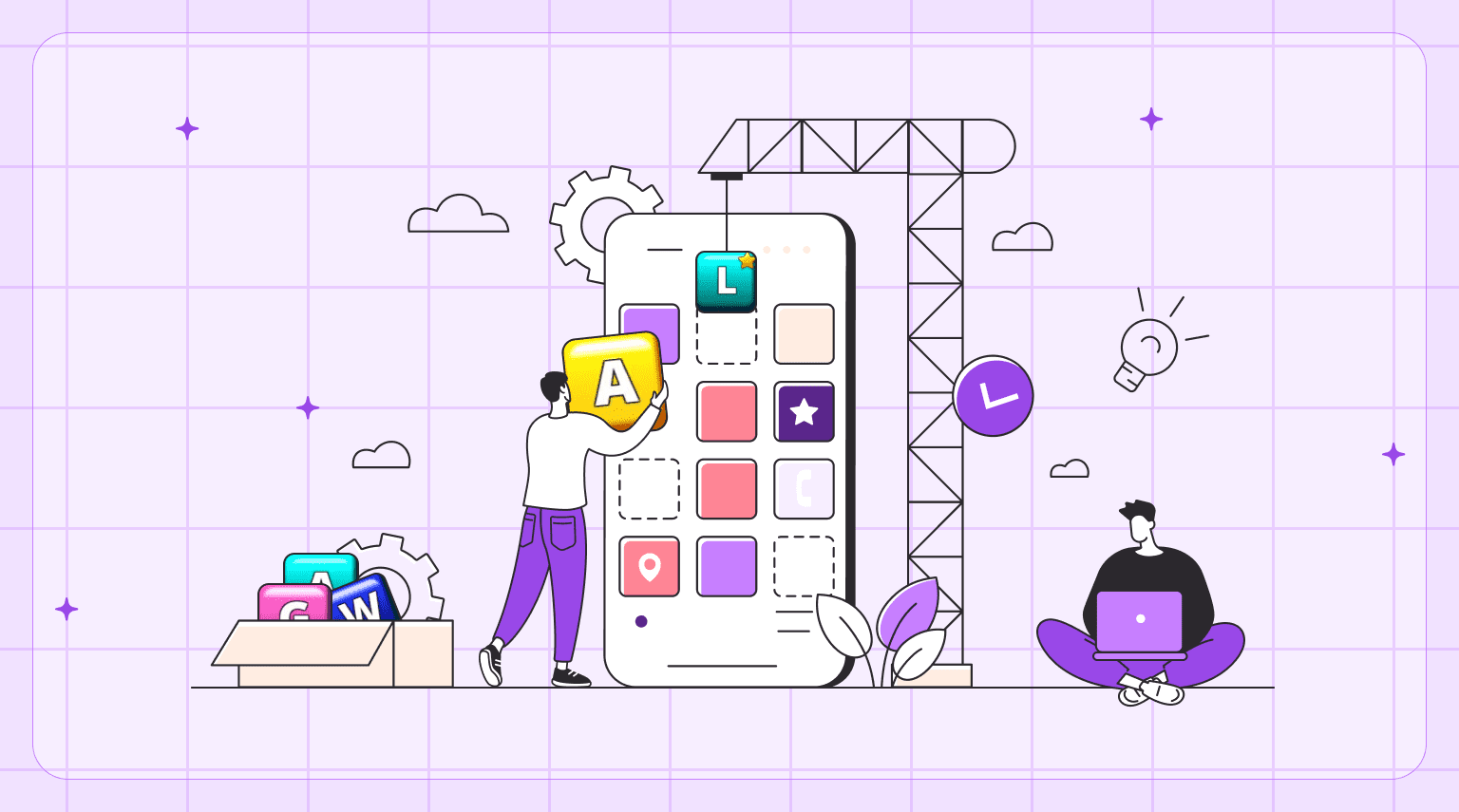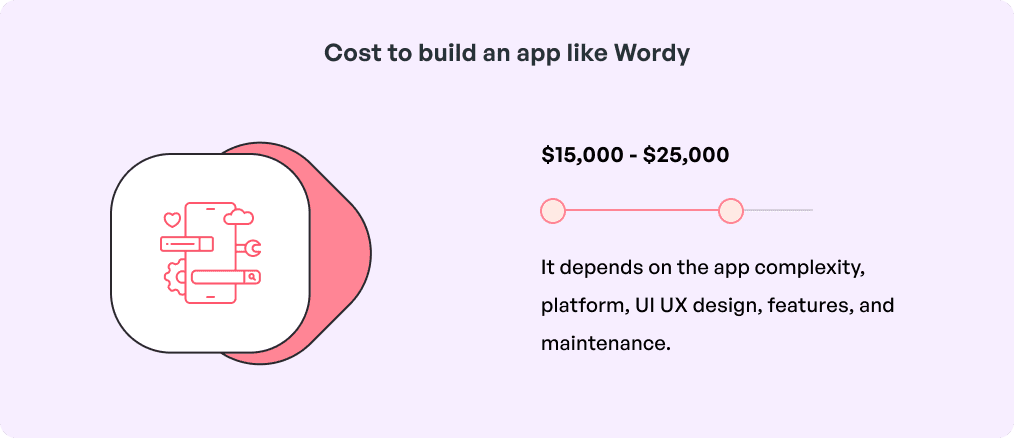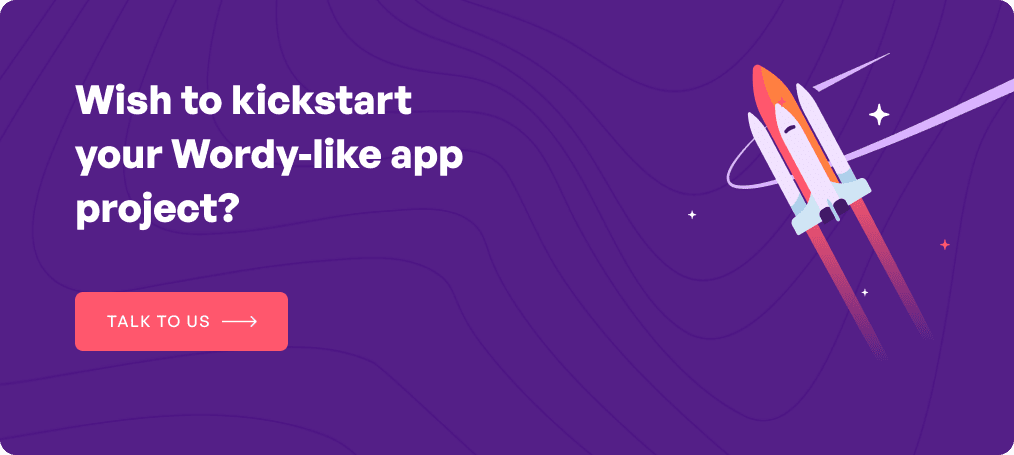Wordy is a real-time and turn-based exciting word puzzle app which is an excellent brain stimulator and loved by users all across the globe. If you are an educational institute, gaming company, or an advertising firm, an app like Wordy could be an ideal choice as a learning platform, monetization opportunity, or building marketing strategies, respectively.
But why does it work so well? It is because puzzle apps offer a sense of accomplishment and satisfaction when solving complex problems. They also often have a progressive difficulty level keeping users hooked by balancing challenge with reward making each solved puzzle a gratifying experience. Plus, their interactive nature adds an element of fun which is preferred by 9 out of 10 consumers, thus keeping your brand on the forefront of their minds.
Given these benefits, the total revenue of the puzzle games industry stands at $20.77 billion in 2024 and is expected to reach $30.09 billion by 2029. Thus, rest assured that building a cross-platform word game app in this ripe ecosystem would be a fruitful investment. Read on to find out how to get started and derive significant revenue from it.
Table of contents
Features of Wordy to imitate and refine for superior results
Having a clear idea of the features that made Wordy popular will help you plan on similar lines. It also helps understand whether they will resonate with your target audience so you can modify or remove them as per business preferences. Below is a walkthrough of the Wordy app features that you too can consider.
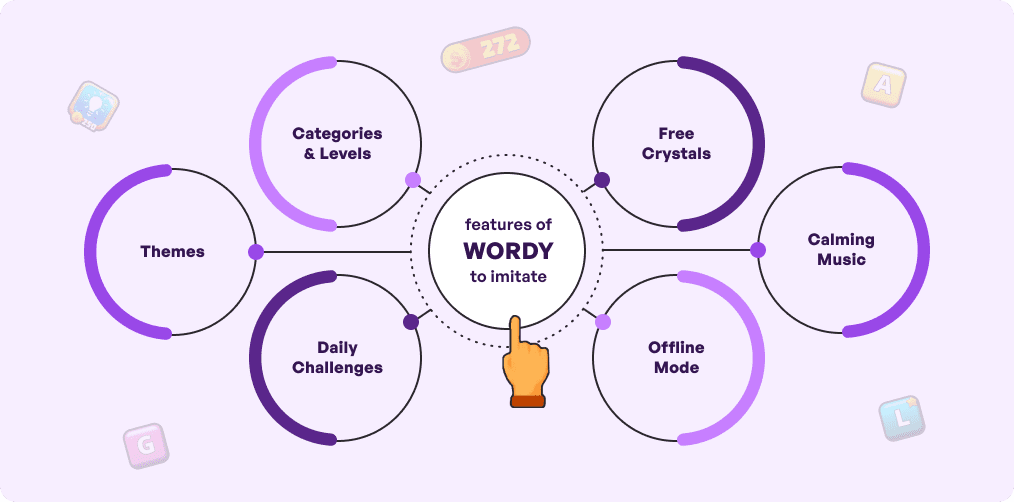
Categories and levels
The game has 10 categories covering unique topics along with 500 levels of difficulty. These keep players highly engaged and challenged. Some common categories and levels are:
Categories:
- Vocabulary – Focus on common words which helps expand vocabulary.
- Synonyms/Antonyms – Finding words that mean the same or opposite.
- Word Length – Puzzle levels categorized by 3-letter, 5-letter, or longer words.
- Anagrams – Rearranging letters to form correct words.
- Spelling – Completing words by filling in missing letters.
Levels:
- Beginner: Simple words and puzzles to introduce new players to the game
- Intermediate: Complex words and challenging patterns to enhance thinking and vocabulary skills.
- Advanced: Difficult puzzles with less common words or multiple layers of clues.
- Timed levels: Solving puzzles within a time limit which adds a layer of thrill.
- Bonus levels: Special or hidden puzzles that reward users for completing milestones.
These categories and levels keep the game exciting and appealing which helps cater to a wide range of skill sets and interests. When you build an app like Wordy, consider adding more different types of levels like sudoku or 3D puzzles.
Themes
Different themes in Wordy help diversify the play experience by focusing on a myriad of topics or categories. Some common themes you might find include:
- Animals: Puzzles about animal names where they live, and how we group them.
- Food and cooking: Words about ingredients, types of food from different places, and kitchen basics.
- Travel and geography: Terms linked to countries, cities, famous places, and maps.
- Science and nature: Words from life studies, matter studies, space studies, and the world around us.
- History: Topics about past events, important people, or places from long ago.
- Sports: Terms tied to various games, players, and big contests.
- Music: Singers types of music things we play music with, and well-known song names.
- Fashion: Clothes and accessories we wear with them, what’s popular, and people who make clothes.
- Holiday and festivals: Themes for special times of year like Christmas and Halloween
These themes spice up the game and give players the chance to pick topics they like, which keeps things enjoyable and tailored to each person. You could do the same when developing a word puzzle app or even add more categories to fit your brand’s needs such as books, TV legal stuff, and politics.
Daily challenges
Wordy app features daily challenges to keep players coming back for more. These typically consist of unique puzzles that refresh daily which encourage users to test their skills and improve their vocabulary on a regular basis. Daily challenges often are equipped with rewards such as in-game points, badges, or hints, providing an extra incentive to participate.
By incorporating a similar feature in an app, businesses can ensure that players remain invested and motivated to complete fresh puzzles and win against friends on leaderboards.
Free crystals
Wordy offers 200 free crystals as bonus for the first game to players which is typically a part of a promotional offer or for completing specific milestones. They can be used to unlock plenty of in-game features and updates like hints, power-ups, or special levels.
As a smart business owner, imitate this feature of a word game app like Wordy by providing more free crystals to encourage new players to explore your app’s premium features while rewarding loyal users. This incentive will boost engagement and retain players by offering them extra resources to solve more challenging puzzles.
Calming music
One of the unique Wordy app features is in-app music which enhances the user experience by creating a soothing background sound. It helps create a relaxed environment, making it easier for players to focus on solving puzzles without feeling rushed or stressed. The gentle melodies improve concentration and contribute to a more immersive experience by offering a perfect blend of mental challenge and relaxation.
Offline mode
The Wordy puzzle app offers an offline mode allowing users to enjoy word puzzles without an internet connection. This feature is particularly convenient for players who want to engage with the game on the go, in areas with poor WiFi connectivity, or simply when they prefer to play offline. By enabling access to puzzles anytime, anywhere, this feature ensures continuous enjoyment and progress making the app more flexible.
To integrate and run similar features, it would be a smart move to collaborate with a mobile app development company like Simublade. We will help build an app like Wordy while simultaneously taking your ideas to the global smartphone market by delivering high-performance iOs, Android, or cross-platform software. Our in-house experts work with factors like flawless integration, cybersecurity, and scalability in mind which helps us cater to meet the complex business needs. Moving ahead, let us look at the steps involved in developing a word puzzle app.
Core steps of building an app like Wordy
Whether you wish to partner with us or any other app development firm, below are the core steps that are typically followed everywhere. Having a clear understanding will help businesses understand what to expect in terms of deadlines and investments. Read on.
Step 1: Discovery and scoping
In this phase, we brainstorm ideas, evaluate market trends, and assess the technical feasibility of your app concept. A product roadmap is then created outlining key milestones. The discovery workshop will cover project estimations, integration requirements, and technical scoping to ensure a clear development path.
Step 2: Product design
Our UI/UX design team will craft engaging, intuitive, and innovative app designs that align with your business objectives. The end result will be a visually captivating app that is both user-friendly and goal-oriented promising seamless experience for end-users.
Step 3: Product engineering
Our mobile app development experts will write secure, clean code to bring your word puzzle app idea to life. We use a combination of languages and frameworks like Python and Swift, and emerging technologies like AI, cloud computing, and AR/VR to help you stand out in the competitive game app market.
Step 4: Testing and QA
Simublade’s QA team ensures your app meets the highest standards in usability, security, and performance through rigorous testing, including unit, performance, integration, load, automation, functional, system, and security testing, ensuring zero gaps in quality.
Step 5: Deployment and launch
We ensure a smooth launch by adhering to app store submission guidelines. For enterprise clients, we also offer seamless integration with existing legacy systems, ensuring the gaming app fits perfectly within their operational framework
The estimated cost of developing word game apps like Wordy will range between $15,000 to $25,000 depending on the complexity of features, UI UX design, technologies, and the charges of the developers. Let us get an idea of the factors that will impact the overall expenses.
 Key factors affecting the cost of building an app like Wordy
Key factors affecting the cost of building an app like Wordy
There are several factors that businesses must understand when they build an app like Wordy to be able to adjust requirements and budget accordingly. Here’s a helpful list.
App complexity
Simple apps with basic functionality such as informational or MVP versions will cost less compared to more complex apps that involve features like real-time syncing, Web 3.0, geolocation, AR/VR, API integration, AI, or IoT. The more advanced the app’s functionalities, the more time and resources will be required for development.
Platform
Developing an app for a single platform (iOS or Android) will be more cost-effective than creating a cross-platform app. However, if you want your app to be available on both platforms, the cost will increase since it may require different development languages, frameworks, and tools. Cross-platform solutions using frameworks like Flutter or React Native can help reduce costs but may still require additional optimization for each platform.
UI UX design
Creating a visually appealing and intuitive UI UX design for word puzzle apps can influence costs. Custom designs tailored to your brand and user needs require more time and expertise than using pre-built templates like Unity. The cost can rise if your app needs unique animations and graphics, advanced UI elements, or high levels of interactivity to enhance the user experience.
Features and infrastructure
More complex apps with features like third-party integrations, payment gateways, or chat systems further increase the investment. Additionally, the backend infrastructure, which powers your app’s functionality and data management, is another major cost driver. Apps that need user authentication, databases, cloud storage, and real-time updates, like Wordy app, will need a robust backend, increasing both development time and cost.
Maintenance
Building the app is just the beginning; maintenance and regular updates are essential to keep it running smoothly and adapt to new versions or user feedback. These ongoing updates, bug fixes, performance optimizations, and the introduction of new features all add to the long-term costs of owning and managing any app.
How to reduce the cost to develop an app like Wordy?
Here are some effective strategies to reduce the overall cost:
Outsource the project
Consider outsourcing app development for word puzzles to regions with lower labor costs instead of taking up the project in-house. Research well and hire software developers who promise high-quality work at a fraction of the cost. For instance, Simublade offers services starting at $25/hour which is quite affordable for all businesses.
Cross platform tools
Try to move your app to cross platform development if you wish to lower the app development costs. So, instead of building separate apps for iOS and Android, use cross-platform development frameworks like Flutter or React Native. These tools allow developers to write a single or unified codebase that works on both platforms thus significantly reducing time and cost.
MVP or minimal viable product
Start with an MVP development of the game app focusing on the core mechanics and essential features. Launching a simplified version of the app with basic features can save time and money in the initial development phase. Additional functionalities and complexities can be added later based on user feedback and revenue generated.
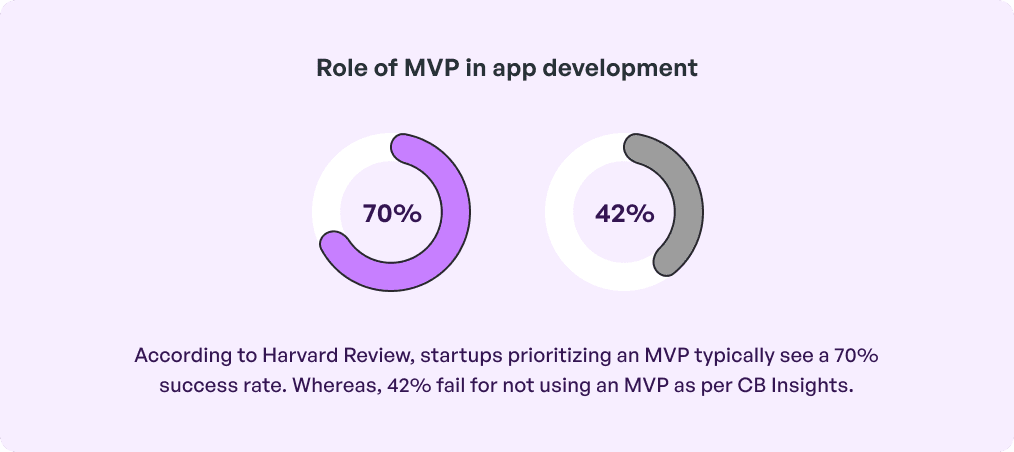
Open-source libraries
Many open-source libraries available for various components of word games, such as word lists, animations, and sound effects. Using these libraries instead of creating custom solutions can lower development costs by saving time and resources.
Legal considerations of building a word puzzle app
When building a vocabulary or puzzle app, there are several legal considerations that need to be addressed to ensure compliance and protect your business. Key areas include:
Intellectual Property Rights
Ensure that your app does not infringe on the intellectual property rights of others. This includes any dictionaries, word databases, images, or content you plan to use in the app. If you’re using third-party content, create proper licensing agreements or that the content is open-source or in the public domain.
Data privacy
If your app collects personal data from users, such as names, emails, or usage data, you must comply with data privacy laws like GDPR (in Europe) and CCPA (in California). This includes providing clear terms and conditions, obtaining user consent for data collection, and ensuring secure data storage and handling practices. Further, it is important to abide by Children’s Online Privacy Protection Act (COPPA) if your word game app is designed for or could be used by children under 13.
In-app regulations
If you are offering in-app purchases or subscriptions, ensure that you comply with platform-specific guidelines (e.g., Apple App Store and Google Play policies) and follow regulations related to consumer rights and payments. Transparency around pricing and cancellation policies is crucial to avoid legal challenges.
How to build a better app than Wordy?
This is a must do to be able to stand out in the crowd of competitors. Below are simple hacks to try and increase the chances of app-store visibility and revenue.
Personalized learning paths: Implement AI-driven personalized word puzzles that adapt to a user’s skill level, learning pace, and preferred themes, offering a tailored experience.
Improved gamification: Introduce advanced reward systems such as daily streak bonuses, achievement badges, and special event challenges to keep users motivated and engaged.
Better UI/UX: Hire experts from a top-notch UI UX development company who can create a sleek, intuitive, and visually appealing interface that’s easy to navigate, with options for themes, dark mode, and customizable layouts for a more personalized experience.
Incorporate audio and visual Elements: Add features like voice-based puzzles, sound clues, or image-based word challenges to make the gameplay more dynamic and varied.
Regular content updates: Provide frequent updates with new puzzles, challenges, and seasonal content to keep the app fresh and encourage users to return regularly.
Advanced progress tracking: Give users detailed insights into their progress, strengths, and areas for improvement with visual reports, helping them track their vocabulary growth.
Conclusion
Studies have found that 1 in 6 Americans love to play puzzle games. So, building a futuristic app can provide immersive experiences that make vocabulary building more interactive while improving revenue. Features like personalized learning paths and adaptive difficulty levels cater to individual user needs, ensuring that players remain challenged and motivated. Further, gamification elements, such as achievements and leaderboards, foster a sense of community among users, encouraging them to return frequently. With the potential for frequent updates and expansion into new themes or categories, a futuristic word app with us at Simublade can continuously evolve, attracting a diverse audience.
FAQs
Q. What are the essential features of a word game app like Wordy?
Ans. The top educational word game app features are daily challenges, rewards, data privacy, and offline mode to name a few.
Q. How much does it cost to develop an app like Wordy?
Ans. The cost to develop an app like Wordy is between $15,000 and $25,000.
Q. What technologies are required to build a word puzzle app?
Ans. Technologies used to build an app like Wordy will depend on the experience you wish to provide to your users. Businesses can consider AI, AR/VR, IoT, Web 3.0, and machine learning for fast and impressive gaming.
Q. What are the challenges in developing a word puzzle app like Wordy?
Ans. Creating an extensive and diverse word database to ensure engaging gameplay and prevent repetition is a challenge. Plus, ensuring a seamless user experience across various devices while maintaining high performance and responsiveness can be tough.
Q. How do I integrate multiplayer functionality into a word game app?
Ans. To integrate multiplayer functionality into a word game app, you can use real-time communication frameworks like WebSockets or Firebase for instant updates between players. Implement features such as turn-based gameplay or live matches, ensuring proper synchronization of game states and handling user sessions securely.


